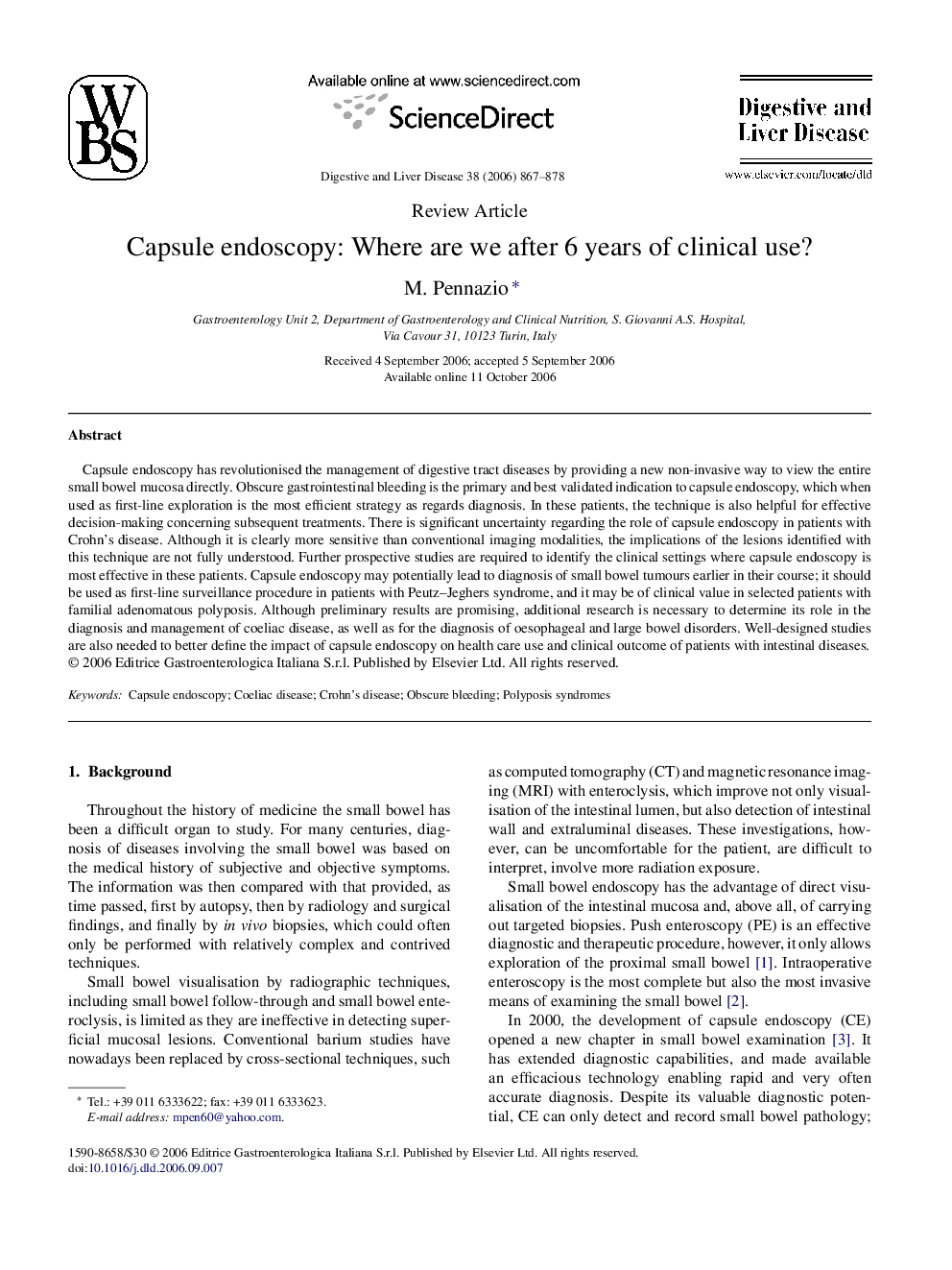| Article ID | Journal | Published Year | Pages | File Type |
|---|---|---|---|---|
| 3266133 | Digestive and Liver Disease | 2006 | 12 Pages |
Capsule endoscopy has revolutionised the management of digestive tract diseases by providing a new non-invasive way to view the entire small bowel mucosa directly. Obscure gastrointestinal bleeding is the primary and best validated indication to capsule endoscopy, which when used as first-line exploration is the most efficient strategy as regards diagnosis. In these patients, the technique is also helpful for effective decision-making concerning subsequent treatments. There is significant uncertainty regarding the role of capsule endoscopy in patients with Crohn's disease. Although it is clearly more sensitive than conventional imaging modalities, the implications of the lesions identified with this technique are not fully understood. Further prospective studies are required to identify the clinical settings where capsule endoscopy is most effective in these patients. Capsule endoscopy may potentially lead to diagnosis of small bowel tumours earlier in their course; it should be used as first-line surveillance procedure in patients with Peutz–Jeghers syndrome, and it may be of clinical value in selected patients with familial adenomatous polyposis. Although preliminary results are promising, additional research is necessary to determine its role in the diagnosis and management of coeliac disease, as well as for the diagnosis of oesophageal and large bowel disorders. Well-designed studies are also needed to better define the impact of capsule endoscopy on health care use and clinical outcome of patients with intestinal diseases.
